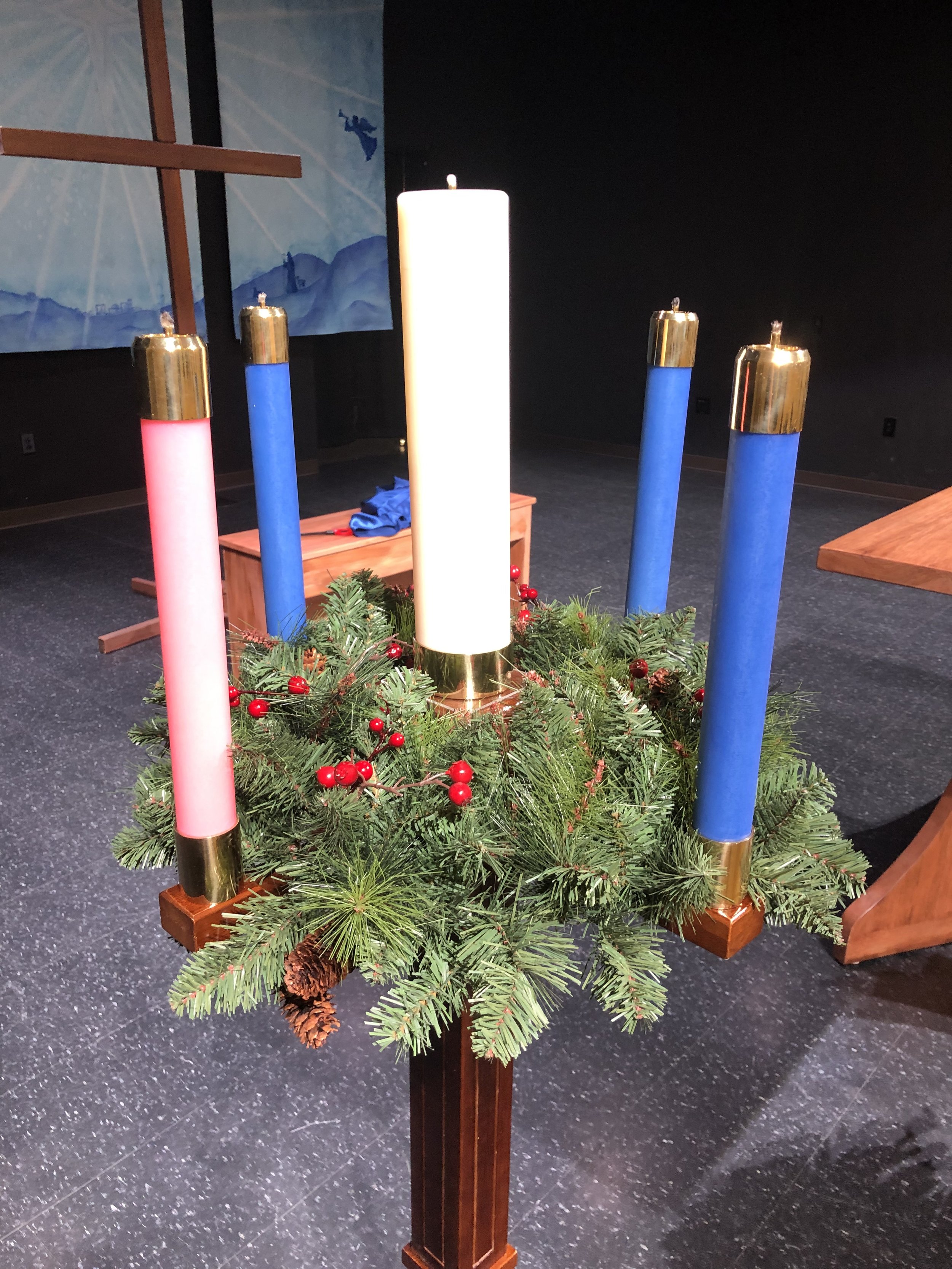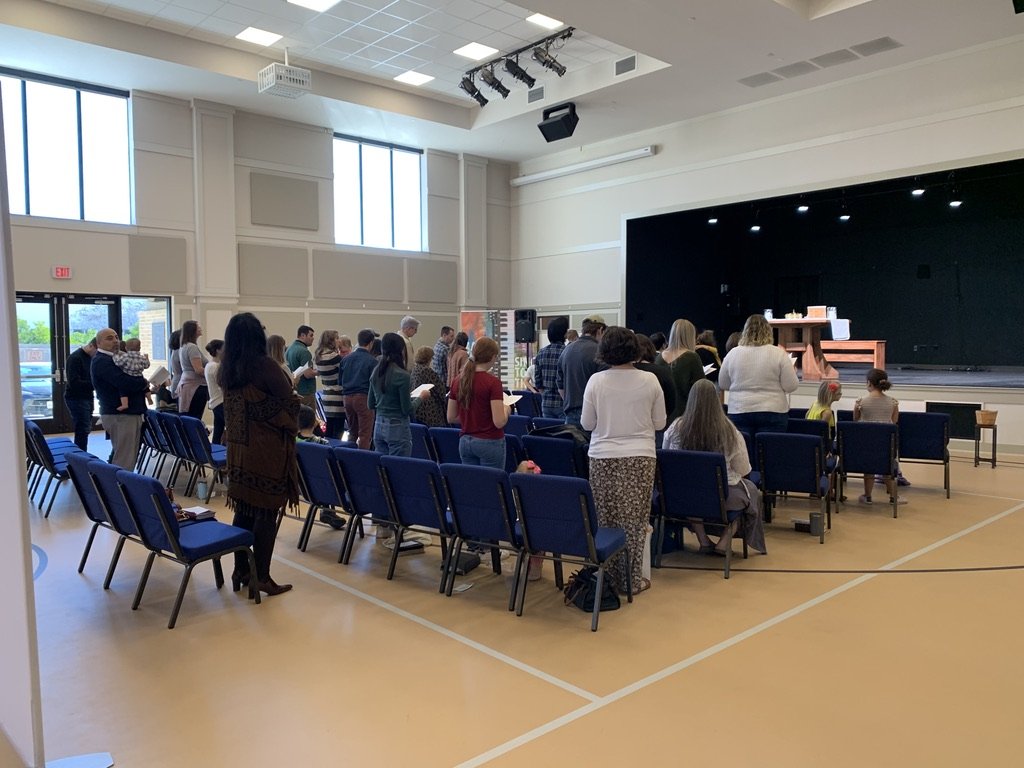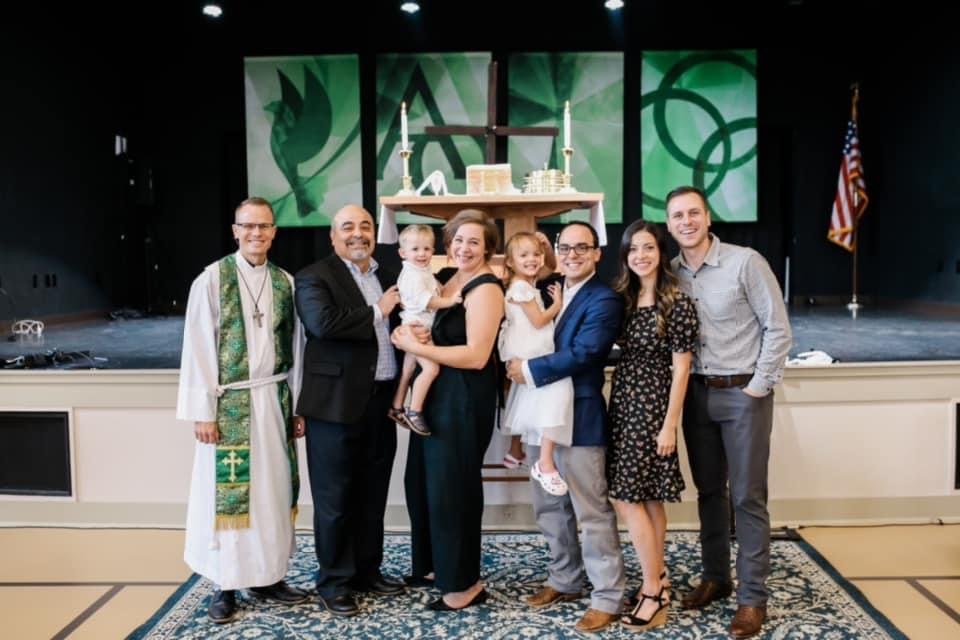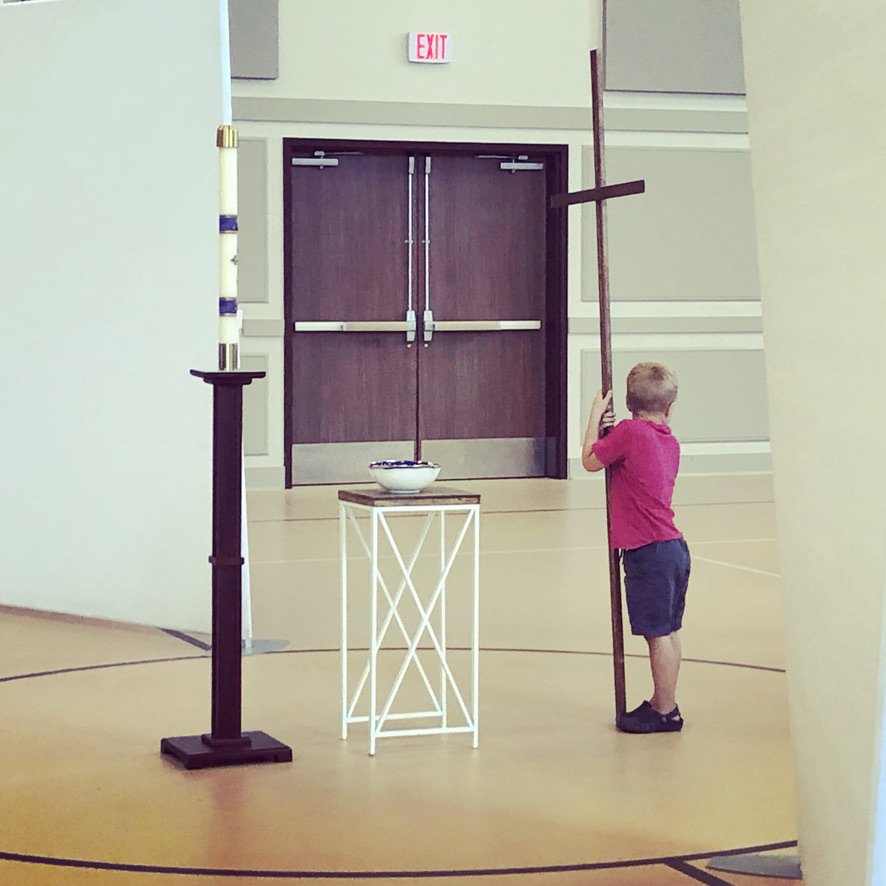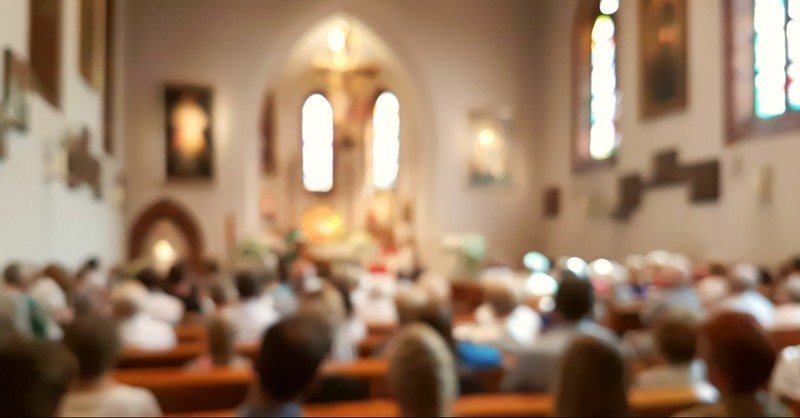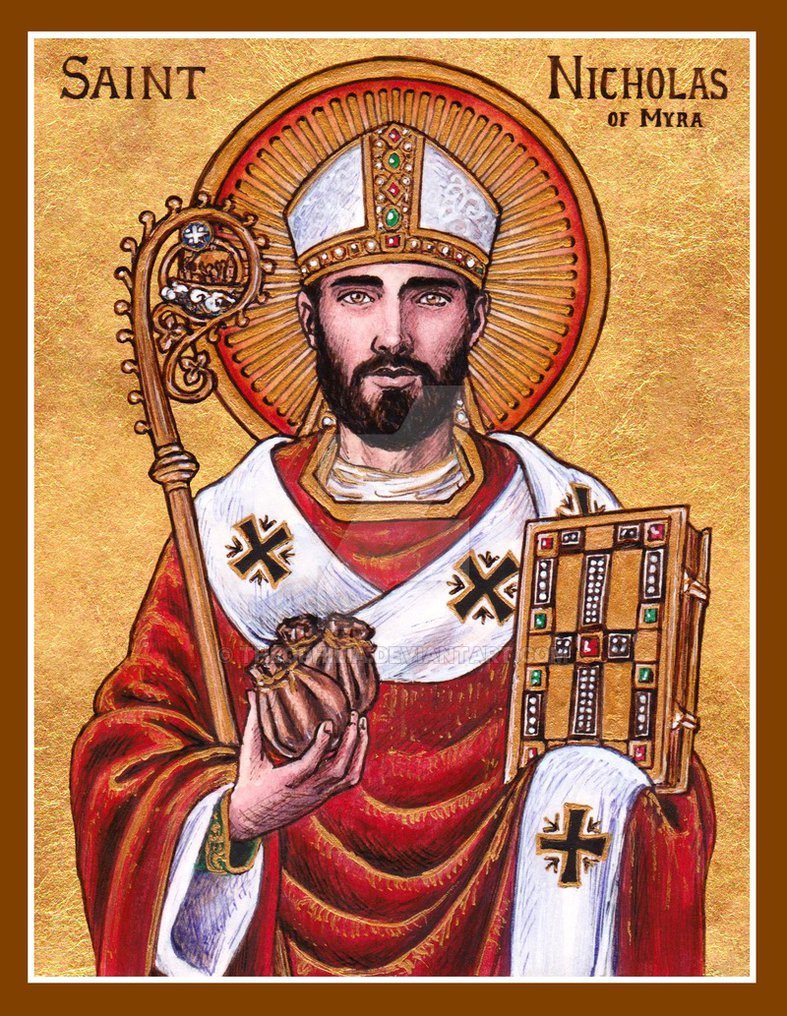Justin Martyr (A.D. 151)
“As many as are persuaded and believe that what we [Christians] teach and say is true, and undertake to be able to live accordingly . . . are brought by us where there is water, and are regenerated in the same manner in which we were ourselves regenerated. For, in the name of God, the Father and Lord of the universe, and of our Savior Jesus Christ, and of the Holy Spirit, they then receive the washing with water. For Christ also said, ‘Except you be born again, you shall not enter into the kingdom of heaven’ [John 3:3]” (First Apology 61 [A.D. 151]).
Irenaeus (A.D. 189, 190, 192)
“He [Jesus] came to save all through himself; all, I say, who through him are reborn in God: infants, and children, and youths, and old men. Therefore he passed through every age, becoming an infant for infants, sanctifying infants; a child for children, sanctifying those who are of that age . . . [so that] he might be the perfect teacher in all things, perfect not only in respect to the setting forth of truth, perfect also in respect to relative age” (Against Heresies 2:22:4 [A.D. 189]).
“‘And [Naaman] dipped himself . . . seven times in the Jordan’ [2 Kgs. 5:14]. It was not for nothing that Naaman of old, when suffering from leprosy, was purified upon his being baptized, but [this served] as an indication to us. For as we are lepers in sin, we are made clean, by means of the sacred water and the invocation of the Lord, from our old transgressions, being spiritually regenerated as newborn babes, even as the Lord has declared: ‘Except a man be born again through water and the Spirit, he shall not enter into the kingdom of heaven’ [John 3:5]” (Fragment 34 [A.D. 190]).
“Now faith occasions this for us even as the Elders, the disciples of the Apostles, have handed it down to us. First of all, it bids us to keep in mind that we have received baptism for the remission of sins in the name of God the Father and in the name of Jesus Christ, the Son of God, who was incarnate, died and rose again, and in the Holy Spirit of God. This baptism is the seal of eternal life and the new birth unto God that we should no longer be the sons of mortal men but of the eternal and perpetual God.” (The Demonstration of the Apostolic Preaching, [192 A.D])
Clement of Alexandria (A.D. 191)
“When we are baptized, we are enlightened. Being enlightened, we are adopted as sons. Adopted as sons, we are made perfect. Made perfect, we become immortal . . . ‘and sons of the Most High’ [Ps. 82:6]. This work is variously called grace, illumination, perfection, and washing. It is a washing by which we are cleansed of sins, a gift of grace by which the punishments due our sins are remitted, an illumination by which we behold that holy light of salvation” (The Instructor of Children 1:6:26:1 [A.D 191]).
Tertulian (A.D 191, 203)
“Happy is our sacrament of water, in that, by washing away the sins of our early blindness, we are set free and admitted into eternal life. . . . But we, little fishes after the example of our [Great] Fish, Jesus Christ, are born in water, nor have we safety in any other way than by permanently abiding in water. So that most monstrous creature, who had no right to teach even sound doctrine, knew full well how to kill the little fishes—by taking them away from the water!” (On Baptism 1 [A.D 203]).
Hippolytus (A.D 215, 217)
“Baptize first the children, and if they can speak for themselves let them do so. Otherwise, let their parents or other relatives speak for them” (The Apostolic Tradition 21:16 [A.D. 215]).
“Perhaps someone will ask, ‘What does it conduce unto piety to be baptized?’ In the first place, that you may do what has seemed good to God; in the next place, being born again by water unto God so that you change your first birth, which was from concupiscence, and are able to attain salvation, which would otherwise be impossible. For thus the [prophet] has sworn to us: ‘Amen, I say to you, unless you are born again with living water, into the name of the Father, Son, and Holy Spirit, you shall not enter into the kingdom of heaven.’ Therefore, fly to the water, for this alone can extinguish the fire. He who will not come to the water still carries around with him the spirit of insanity for the sake of which he will not come to the living water for his own salvation” (Homilies 11:26 [A.D. 217]).
Origen (A.D 235, 248)
“Every soul that is born into flesh is soiled by the filth of wickedness and sin. . . . In the Church, baptism is given for the remission of sins, and, according to the usage of the Church, baptism is given even to infants. If there were nothing in infants which required the remission of sins and nothing in them pertinent to forgiveness, the grace of baptism would seem superfluous” (Homilies on Leviticus 8:3 [A.D. 248]).
“The Church received from the apostles the tradition of giving baptism even to infants. The apostles, to whom were committed the secrets of the divine sacraments, knew there are in everyone innate strains of [original] sin, which must be washed away through water and the Spirit” (Commentaries on Romans 5:9 [A.D. 248]).
“It is not possible to receive forgiveness of sins without baptism” (Exhortation to the Martyrs 30 [A.D. 235]).
Cyprian of Carthage (A.D 253)
“As to what pertains to the case of infants: You [Fidus] said that they ought not to be baptized within the second or third day after their birth, that the old law of circumcision must be taken into consideration, and that you did not think that one should be baptized and sanctified within the eighth day after his birth. In our council it seemed to us far otherwise. No one agreed to the course which you thought should be taken. Rather, we all judge that the mercy and grace of God ought to be denied to no man born” (Letters 64:2 [A.D. 253]).
“If, in the case of the worst sinners and those who formerly sinned much against God, when afterwards they believe, the remission of their sins is granted and no one is held back from baptism and grace, how much more, then, should an infant not be held back, who, having but recently been born, has done no sin, except that, born of the flesh according to Adam, he has contracted the contagion of that old death from his first being born. For this very reason does he [an infant] approach more easily to receive the remission of sins: because the sins forgiven him are not his own but those of another” (ibid., 64:5).
Council of Nicaea (A.D. 325)
“And I believe in one holy catholic and apostolic Church. I acknowledge one baptism for the remission of sins; and I look for the resurrection of the dead, and the life of the world to come.” (Council of Nicaea, [A.D 325]).
Cyril of Jerusalem (A.D. 350)
“If any man does not receive baptism, he does not have salvation. The only exception is the martyrs, who even without water will receive the kingdom. . . . For the Savior calls martyrdom a baptism, saying, ‘Can you drink the cup which I drink and be baptized with the baptism with which I am to be baptized [Mark 10:38]?’ Indeed, the martyrs too confess, by being made a spectacle to the world, both to angels and to men [1 Cor. 4:9]” (Catechetical Lectures 3:10 [A.D. 350]).
Gregory of Nazianzus (A.D. 388)
“Do you have an infant child? Allow sin no opportunity; rather, let the infant be sanctified from childhood. From his most tender age let him be consecrated by the Spirit. Do you fear the seal [of baptism] because of the weakness of nature? Oh, what a pusillanimous mother and of how little faith!” (Oration on Holy Baptism 40:7 [A.D. 388]).
“‘Well enough,’ some will say, ‘for those who ask for baptism, but what do you have to say about those who are still children, and aware neither of loss nor of grace? Shall we baptize them too?’ Certainly [I respond], if there is any pressing danger. Better that they be sanctified unaware, than that they depart unsealed and uninitiated” (ibid., 40:28).
John Chrysostom (A.D. 387, 388)
“You see how many are the benefits of baptism, and some think its heavenly grace consists only in the remission of sins, but we have enumerated ten honors [it bestows]! For this reason we baptize even infants, though they are not defiled by [personal] sins, so that there may be given to them holiness, righteousness, adoption, inheritance, brotherhood with Christ, and that they may be his [Christ’s] members” (Baptismal Catecheses in Augustine, Against Julian 1:6:21 [A.D. 388]).
“Do not be surprised that I call martyrdom a baptism, for here too the Spirit comes in great haste and there is the taking away of sins and a wonderful and marvelous cleansing of the soul, and just as those being baptized are washed in water, so too those being martyred are washed in their own blood” (Panegyric on St. Lucian 2 [A.D. 387]).
Augustine (A.D. 400-412)
“What the universal Church holds, not as instituted [invented] by councils but as something always held, is most correctly believed to have been handed down by apostolic authority. Since others respond for children, so that the celebration of the sacrament may be complete for them, it is certainly availing to them for their consecration, because they themselves are not able to respond” (On Baptism, Against the Donatists 4:24:31 [A.D. 400]).
“The custom of Mother Church in baptizing infants is certainly not to be scorned, nor is it to be regarded in any way as superfluous, nor is it to be believed that its tradition is anything except apostolic” (The Literal Interpretation of Genesis 10:23:39 [A.D. 408]).
“Cyprian was not issuing a new decree but was keeping to the most solid belief of the Church in order to correct some who thought that infants ought not be baptized before the eighth day after their birth. . . . He agreed with certain of his fellow bishops that a child is able to be duly baptized as soon as he is born” (Letters 166:8:23 [A.D. 412]).
“By this grace baptized infants too are ingrafted into his [Christ’s] body, infants who certainly are not yet able to imitate anyone. Christ, in whom all are made alive . . . gives also the most hidden grace of his Spirit to believers, grace which he secretly infuses even into infants. . . . It is an excellent thing that the Punic [North African] Christians call baptism salvation and the sacrament of Christ’s Body nothing else than life. Whence does this derive, except from an ancient and, as I suppose, apostolic tradition, by which the churches of Christ hold inherently that without baptism and participation at the table of the Lord it is impossible for any man to attain either to the kingdom of God or to salvation and life eternal? This is the witness of Scripture, too. . . . If anyone wonders why children born of the baptized should themselves be baptized, let him attend briefly to this. . . . The sacrament of baptism is most assuredly the sacrament of regeneration” (Forgiveness and the Just Deserts of Sin, and the Baptism of Infants 1:9:10; 1:24:34; 2:27:43 [A.D. 412]).
Council of Carthage V (A.D. 401)
“Item: It seemed good that whenever there were not found reliable witnesses who could testify that without any doubt they [abandoned children] were baptized and when the children themselves were not, on account of their tender age, able to answer concerning the giving of the sacraments to them, all such children should be baptized without scruple, lest a hesitation should deprive them of the cleansing of the sacraments. This was urged by the [North African] legates, our brethren, since they redeem many such [abandoned children] from the barbarians” (Canon 7 [A.D. 401]).
Council of Mileum II (A.D. 416)
“[W]hoever says that infants fresh from their mothers’ wombs ought not to be baptized, or say that they are indeed baptized unto the remission of sins, but that they draw nothing of the original sin of Adam, which is expiated in the bath of regeneration . . . let him be anathema [excommunicated]. Since what the apostle [Paul] says, ‘Through one man sin entered into the world, and death through sin, and so passed to all men, in whom all have sinned’ [Rom. 5:12], must not be understood otherwise than the Catholic Church spread everywhere has always understood it. For on account of this rule of faith even infants, who in themselves thus far have not been able to commit any sin, are therefore truly baptized unto the remission of sins, so that that which they have contracted from generation may be cleansed in them by regeneration” (Canon 3 [A.D. 416])

